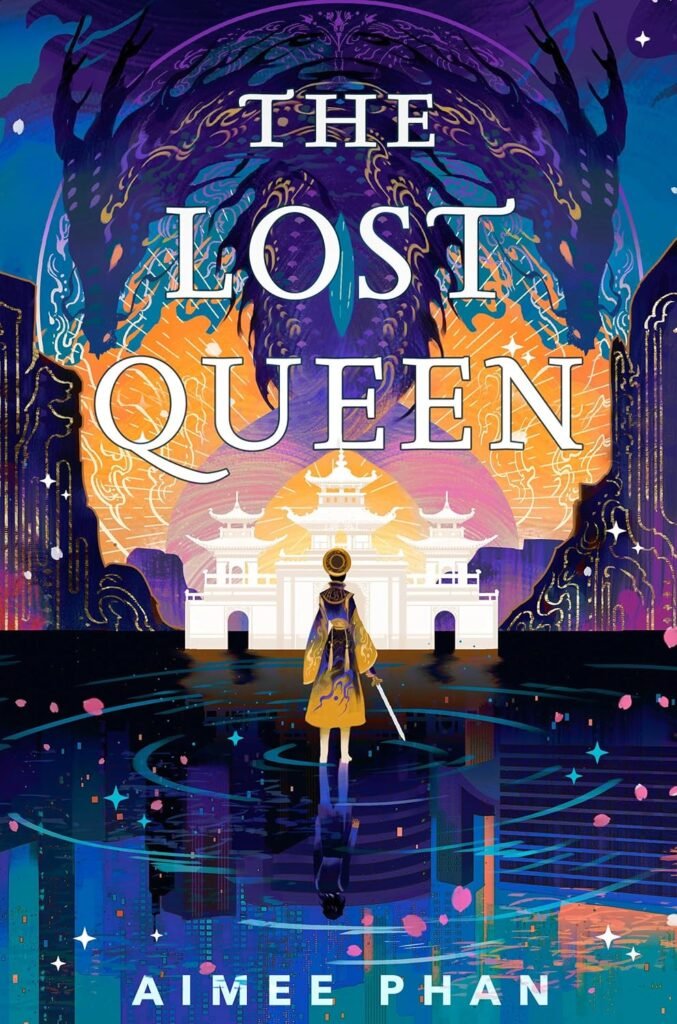The Lost Queen (Lost Queen, 1) – A Reflection on Heritage and Identity
As a passionate reader and a Vietnamese American, The Lost Queen by Aimee Phan caught my eye immediately. The promise of a narrative steeped in Vietnamese culture and mythology had me buzzing with anticipation. I love the feeling of diving into stories that mirror my own heritage—a chance to connect with the rich tapestry of history woven through my own upbringing. However, what I hoped would be a celebration of cultural identity turned out to be a bit of a journey into confusion.
Plot Overview and Characters
The story follows Jolie, an outcast at her San Jose high school grappling with the aftermath of a traumatic incident during a swim meet. She’s now a target of cyberbullying and feels abandoned by her friends. Everything changes when she meets Huong, a vibrant foreign exchange student. Together, they embark on a journey that connects them to their incredible past as the reincarnations of the renowned Trung sisters, figures of immense significance in Vietnamese culture.
While the premise is tantalizing, I found myself grappling to grasp the nuances. The quote that resonated with me, “What can a lost queen do?” encapsulates Jolie’s struggle for identity and purpose. However, as I turned the pages, particularly in the final third of the book, I felt the narrative lose its footing. There were so many unresolved threads and rushed plot points that it left me feeling bewildered rather than exhilarated.
Writing Style and Pacing
On a positive note, Phan’s writing is fluid and accessible, making it an easy read for those unfamiliar with Vietnamese culture. I appreciated the seamless integration of cultural references, which brought authenticity to the story. The opening chapters were rich in detail and built a foundation that drew me in. Yet, the latter portion felt significantly rushed, almost as if we were abruptly thrown into the deep end of a complex narrative without adequate preparation. The clean prose contrasted sharply with the chaotic climax, and I couldn’t help but feel disappointed.
Memorable Moments
One particularly jarring moment was the incongruous conversation about Huong’s sex life, which felt entirely out of place. It struck me as unnecessary and detracted from the story’s main theme. While I understand that teens often navigate such dialogues, this felt more like an awkward interruption than a meaningful commentary.
The book definitely shines in its exploration of themes like identity, the weight of history, and the bonds of friendship. However, I can’t shake the feeling that the narrative could have flourished with a bit more structure and a clearer sense of direction.
Conclusion
Ultimately, The Lost Queen offers a compelling exploration of heritage but feels uneven in execution. I know many readers, especially those who cherish stories rooted in cultural mythology, may find value in it—and I plan to read the next installment to see how it evolves. While this first book did not fully meet my expectations, I believe there’s a wealth of potential in Phan’s retelling of such important historical figures.
If you’re intrigued by the intersection of culture and fantasy or seek stories that highlight the richness of Asian heritage, you might find The Lost Queen worth a read. As I continue my journey with this series, I remain hopeful that the next chapters will navigate through the complexities of character and plot with the same flair that initially captivated me. Remember, despite its shortcomings, supporting Asian authors and the voices they bring to literature is absolutely essential.
[ad_2]
Discover more about The Lost Queen (Lost Queen, 1) on GoodReads >>







